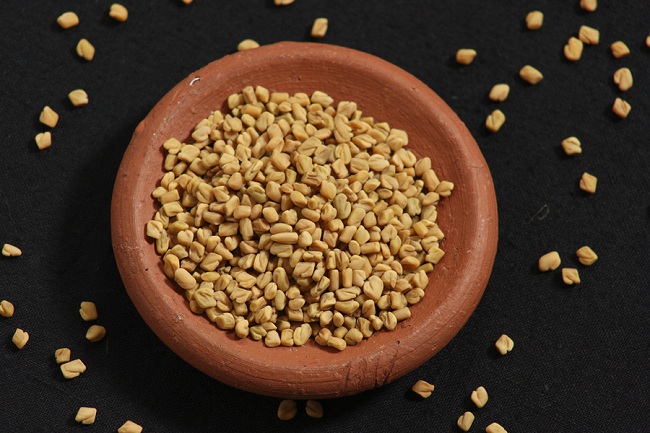- Make It Yourself Lavender Heart-Shaped Bath Bombs!
- 20 Things You Never Knew About “Down There”
- 12 Best Foods For Those Suffering From Arthritis Pain
- 12 Personal Hygiene Mistakes Almost Everyone Makes (Mom Never Told You About #4!)
- 15 Medicinal Plants And Herbs From The Cherokee People
- 12 Mind-Blowing Benefits Of Drinking Coconut Water During Pregnancy
- 12 Outstanding Winter Foods That Won’t Fatten You Up Like A Christmas Turkey
Why You Should Add Fenugreek To Your Diet

Photo credit: bigstock.com
The word fenugreek may be something you have never heard of before, but you will be really surprised to know that it represents one of the oldest medicinal herbs in the world. The versatile plant goes back to the year 1500 BCE and was used in India, Greece, Arabia, and China.
While this herb was most used to help reduce the congestion in the lungs and the mucus that goes with it, why is it something you should add to your diet in this day and age? Here are some reasons that besides being used for several health issues, fenugreek is also recognized for its success with the female reproductive issues. It is an important herb that can also help with many of today’s conditions. Here are 14 conditions that fenugreek could help resolve in your life.
1. Menopause
A clinical trial studied women who took fenugreek to remedy the side effects they suffered from while going through menopause as opposed to those women who received a placebo instead. In every area, the group who was taking the fenugreek had better results than those taking the placebo. The areas where fenugreek showed better results were: hot flashes (32% of the women ended up with no hot flashes at all), night sweats (57.1% improvement with fenugreek), headaches (53.9% improvement with fenugreek), and insomnia (75% improvement with fenugreek).
2. Polycystic Ovarian Syndrome
In the study regarding women suffering from polycystic ovarian syndrome (PCOS), the group who took the fenugreek two times each day for 3 months showed a significant benefit in symptoms. By the time the trial was over, 71% of the women taking the fenugreek were returned to regular menstrual cycles. The amount and size of the cysts were both reduced, and the complete increase in symptoms with fenugreek reached 94%.
3. Parkinson’s Disease
A clinical trial occurred with 42 people who had Parkinson’s disease were either given a placebo, or 300 mg of seed extract from the fenugreek herb. While some of the results did not show as large of a difference as they expected, there were changes in the motor score, as well as the Unified Parkinson’s Disease Rating Scale. At least 21.7% of those taking the fenugreek progressed 21.7% as opposed to 5.3% who took the placebo.
Continue to Page 2
































